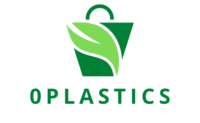In the dynamic landscape of sustainability, plastic-free marketplaces are emerging not only as hubs for eco-friendly products but also as powerful educational platforms. Beyond providing alternatives to plastic, these marketplaces play a pivotal role in empowering consumers with knowledge, fostering environmental consciousness, and driving a shift towards sustainable living. Let’s explore the educational role of plastic-free marketplaces in empowering consumers to make informed and eco-conscious choices.
1. Environmental Impact Awareness:
Plastic-free marketplaces serve as educational gateways, raising awareness about the environmental impact of plastic consumption. Through informative content, blog posts, and interactive features, these platforms enlighten consumers about the life cycle of plastics, the detrimental effects on ecosystems, and the urgency of adopting sustainable alternatives. By understanding the broader environmental implications, consumers become more motivated to make mindful choices.
2. Showcasing Sustainable Alternatives:
At the core of the educational role lies the presentation of sustainable alternatives. Plastic-free marketplaces curate a diverse array of products, from everyday essentials to lifestyle items, demonstrating that eco-friendly options are readily available. By showcasing alternatives such as bamboo toothbrushes, stainless steel straws, and compostable packaging, these marketplaces guide consumers towards products that align with their commitment to reducing environmental impact.
3. Guiding Plastic-Free Living:
Plastic-free marketplaces actively guide consumers on their journey towards a plastic-free lifestyle. They provide practical tips, step-by-step guides, and resources that empower individuals to make sustainable choices in their daily lives. Whether it’s reducing single-use plastics, embracing reusable products, or adopting mindful consumption habits, these platforms serve as educational companions in navigating the transition to a plastic-free existence.
4. Transparency in Product Information:
Transparency is a key component of the educational role played by plastic-free marketplaces. These platforms prioritize providing detailed information about the products they feature, including materials used, manufacturing processes, and environmental certifications. Transparent product information allows consumers to make informed decisions, aligning their purchases with their values and sustainability goals.
5. Collaborative Educational Initiatives:
Plastic-free marketplaces often collaborate with environmental organizations, NGOs, and influencers to amplify educational initiatives. Webinars, workshops, and collaborative campaigns contribute to a shared pool of knowledge, reaching a broader audience. By engaging in collaborative educational efforts, these marketplaces foster a sense of community and collective responsibility for the planet.
6. Communicating the Benefits of Sustainable Choices:
Beyond highlighting the environmental impact of plastic, plastic-free marketplaces emphasize the positive benefits of sustainable choices. Whether it’s the reduction of carbon footprints, the preservation of natural habitats, or the promotion of a healthier lifestyle, these marketplaces communicate the broader advantages associated with eco-friendly living. By framing sustainability as a positive and empowering choice, consumers are more likely to embrace it as a lifestyle.
7. Demystifying Sustainable Practices:
For many consumers, adopting sustainable practices may seem daunting or confusing. Plastic-free marketplaces play a crucial role in demystifying sustainability by breaking down complex concepts into actionable steps. Whether it’s explaining the difference between compostable and biodegradable or offering tips for reducing waste, these educational efforts make sustainable living more accessible and achievable for everyone.
8. Inspiring Conscious Consumerism:
The educational role of plastic-free marketplaces extends beyond individual choices to inspire a shift in consumer behavior. By highlighting the impact of conscious consumerism, these platforms encourage individuals to consider the environmental and ethical aspects of their purchases. This shift towards mindful consumerism contributes to a broader cultural transformation, where sustainability becomes a driving force in purchasing decisions.
In conclusion, plastic-free marketplaces are not merely transactional spaces but influential educators shaping the mindset of consumers. By providing information, showcasing alternatives, guiding lifestyle choices, fostering transparency, engaging in collaborations, communicating benefits, demystifying practices, and inspiring conscious consumerism, these platforms empower individuals to be informed advocates for a plastic-free and sustainable future. The educational journey initiated by plastic-free marketplaces is a powerful catalyst for positive change, laying the groundwork for a more environmentally conscious global community.
